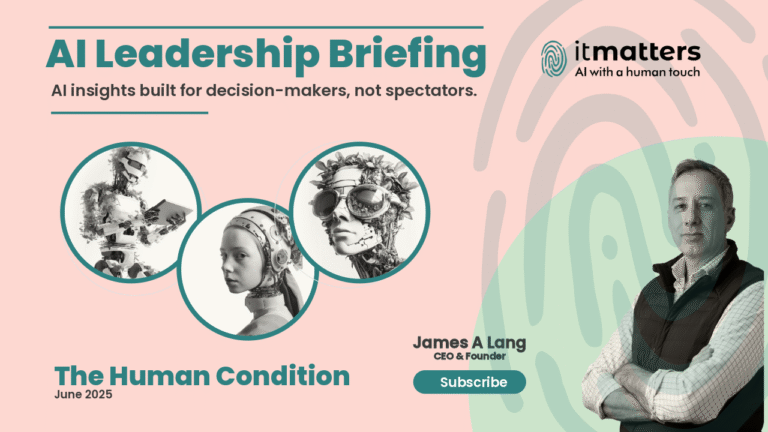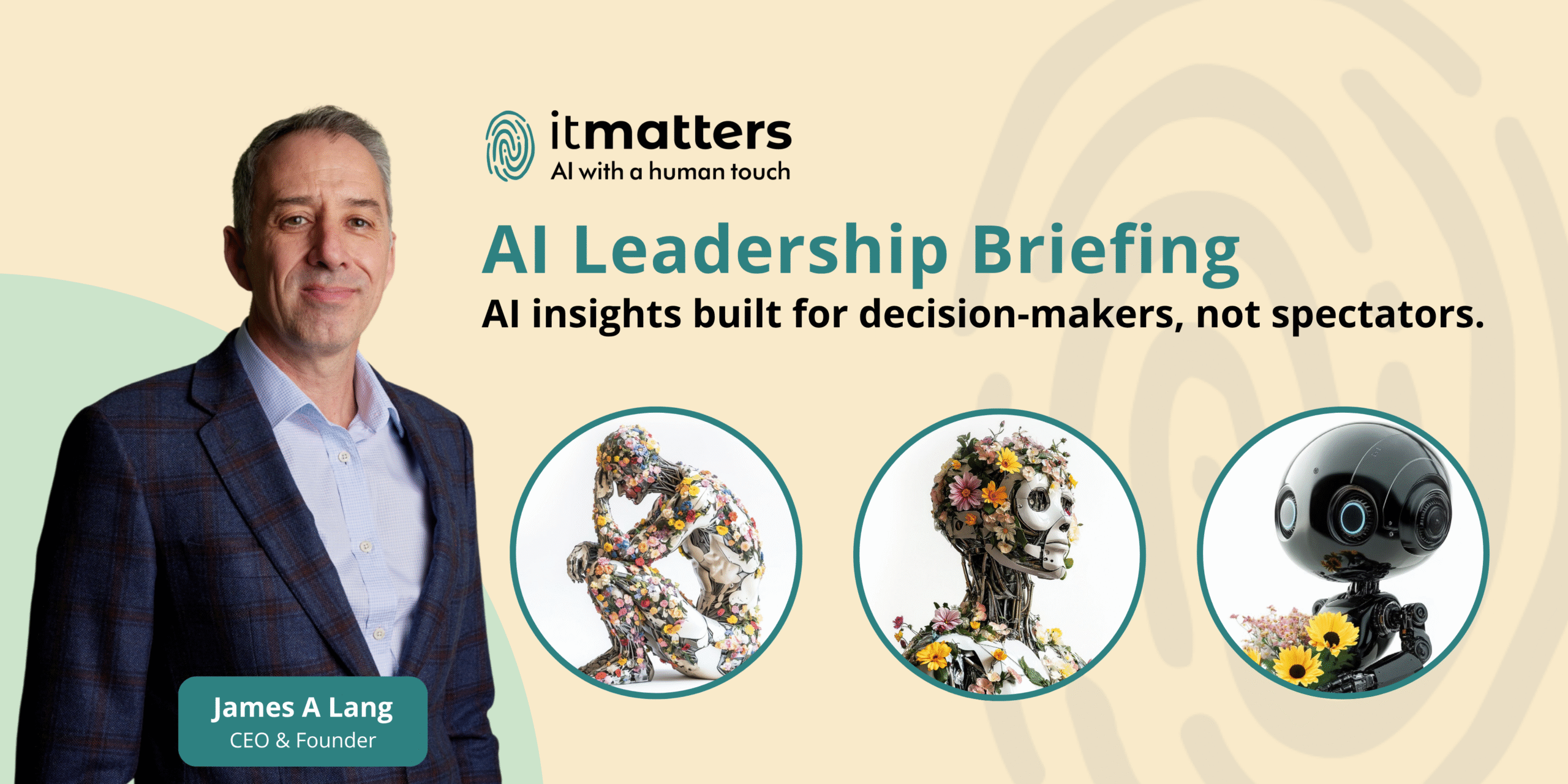The itmatters AI Leadership Briefing
AI insights built for decision-makers – not spectators.
Series: Week 4, June 2025 – Identity, Flaws, and the Myth of Perfection
Edition Date: Monday 23 June 2025
As generative AI personalises more of our content, services, and even advice, it does more than respond to who we are—it reflects and reshapes us.
From AI avatars to adaptive chatbots, we are entering an era where AI and identity are increasingly entangled.
These systems don’t just react to us. They model us, filter us, and sometimes define us.
And in doing so, they encode assumptions—some empowering, others limiting.
Reflective Human Insight
Your digital reflection is curated by algorithms.
Leadership means choosing what you allow it to become.
In an age where AI personalization drives engagement, leaders must remain vigilant about what their tools mirror—and what they reinforce.
Today’s Tactical Signals
1. TikTok AI Avatars Drive Demand for “Better” Digital Versions of Self
Users increasingly seek AI-generated avatars that reflect idealized or enhanced versions of themselves, fueling demand for more sophisticated digital self-representation.
Why it matters: This trend shapes identity and self-perception, raising questions about authenticity and psychological impact.
(Social Media Analytics, 2025)
2. Snapchat’s MyAI Raises Concerns Over Harmful Teen Identity Comparisons
Snapchat’s AI chatbot MyAI has been linked to increased harmful social comparisons among teens, affecting mental health and self-esteem.
Why it matters: AI-driven social tools can unintentionally exacerbate vulnerabilities in young users, demanding ethical oversight and safeguards.
(Youth Mental Health Report, 2025)
3. OpenAI’s ChatGPT Introduces Personalised Tone Tuning Based on Past Prompts
ChatGPT now adapts its tone and style dynamically by learning from users’ previous prompts, enhancing personalization.
Why it matters: Personalization improves user engagement but also raises privacy concerns and the risk of reinforcing biases.
(OpenAI Product Update, 2025)
4. Adobe Launches Identity-Aware Content Moderation AI
Adobe’s new AI moderation tools incorporate identity recognition to better flag harmful or inappropriate content tailored to user context.
Why it matters: Enhanced moderation supports safer digital environments but requires careful handling of identity data to protect privacy.
(Adobe Press Release, 2025)
5. MIT Study Reveals Bias in AI Mirror Filters Affecting Teen Self-Perception
Research from MIT highlights that AI-powered mirror filters often reflect biased beauty standards, negatively impacting teens’ self-image.
Why it matters: Bias in AI tools can perpetuate harmful stereotypes, underscoring the need for inclusive design and auditing.
(MIT Media Lab, 2025)
Field Note from the Future
It is 2028. A still lake reflects the world—but its surface is shaped by unseen currents beneath.
AI mirrors our identity the same way, reflecting biases and habits hidden below.
The rise of AI personalization means users may no longer see themselves, but the version AI thinks they want to be.
Leaders must choose what AI reflects and shapes, knowing it’s never a neutral mirror.
Why it matters for leaders:
Bias in AI is not a glitch—it’s a systemic issue that silently molds user identity and expectations.
When AI becomes a mirror, leaders must decide: What should be reflected? What must be corrected?
Building trust in AI starts with transparency and continues with deliberate, human-centered AI design.
If unchecked, personalized AI can create echo chambers, amplify insecurities, and erode agency—especially for vulnerable users.
Summary (Leadership Action)
Identity isn’t static—and AI isn’t neutral.
Audit how your tools are rewriting the self.
- Audit AI tools for bias and identity impact
Conduct regular AI bias audits to uncover and correct systemic patterns in how identity is shaped. - Set ethical boundaries on AI personalization
Define what types of identity-driven content are appropriate, especially for youth and marginalized groups. - Equip teams to critically engage with AI outputs
Foster AI literacy and media awareness across your organisation. - Prioritize transparency
Ensure users know when and how their data influences AI behavior and decisions.
Historical Leadership Quote
“We know what we are, but know not what we may be.”
– William Shakespeare
Orders of the Day
Subscribe for tomorrow’s briefing
itmatters brings you the clarity, context, and credibility needed to lead in a shifting world.
Tomorrow’s Preview
What’s next for Identity, Flaws, and the Myth of Perfection?



